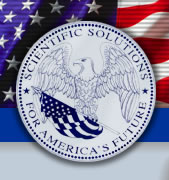Institute to Host Conferences on Organic Agriculture
Since its founding in 1992, the Institute has explored promising new approaches to global agriculture that can protect our health and environment while simultaneously providing greater profits for our farmers. These include cutting-edge organic agricultural methods based on a deep understanding of the most profound laws of nature governing farming.
However, U.S. agricultural policy continues to be dominated by approaches based on the widespread use of chemical pesticides, herbicides, and genetic engineering. Rather than sustaining life, such technologies degrade the environment, threaten the health of consumers and farmers, and undermine the continuity of family farming.
To address this critical situation, the Institute will host a series of conferences on organic agriculture beginning in Spring of 2002. These conferences will focus on the creation, assessment, promotion, and implementation of new agricultural technologies that are effective, sustainable, and economically viable. Conference speakers and attendees will consider agricultural prototypes that address the following needs:
- to reconnect American consumers with knowledge about their food—its origins, production, quality, and safety—in order to safeguard public health and the environment;
- to educate farmers about viable alternatives to chemical/biotech/high-input agriculture and to strengthen relationships between farmers and their local markets; and
- to facilitate agricultural self-sufficiency to help eliminate the root causes of hunger.
“At Mothers for Natural Law, we feel that the ‘disconnect’ between consumers and their food is one of the most serious and overlooked causes of our global sustainability crisis—a direct cause of worldwide environmental degradation, ill health, and the heartbreaking powerlessness of the hungry,” says Laura Ticciati, executive director of Mothers for Natural Law, conference co-sponsor, and a member of the Institute’s advisory team. “As a nation, we simply don’t understand the implications of growing, eating, importing, or exporting food using chemical-based agriculture—nor do we see any viable alternatives. But documented, practical, exciting, cost-effective alternatives exist, and that’s why the Institute is sponsoring these upcoming conferences on organic agriculture.”
|
The Institute in 1992 was one of the first U.S. organizations to voice strong concerns about the potential hazards of genetic engineering (GE). At the time, very few Americans had even heard of GE, and U.S. agricultural policy was being powerfully shaped by the biotechnology and agrochemical industries. But during the past ten years, Institute director Dr. John Hagelin and a team of Institute scientists have helped catapult this issue onto the front pages of the national and international press, bringing their scientific concerns about GE to Congress, the food industry, and consumers. Today, scientists, doctors, farmers, food industry leaders, consumers, organizations, and government officials all over the world have raised a united warning about this radical technology.
Dr. Hagelin comments, “As a nuclear physicist, I have seen firsthand the results of the hasty commercialization of nuclear technologies that have threatened mankind with extinction. I am similarly concerned that short-term financial interests of a few biotech firms are guiding the commercialization of these equally, if not more, dangerous genetic technologies.”
Among the Institute’s successes are the following:
- The creation of a coalition of over 40 businesses, organizations, and scientists demanding a ban on genetic engineering in foods labeled “organic,” thereby helping create the largest citizen response in USDA history and winning a great victory for the purity of the “organic” label.
- In close conjunction with Mothers for Natural Law, the collection and presentation in Washington, D.C., of over 500,000 signatures supporting mandatory labeling of GE foods—an event heralded by the international press as the turning point on the GE issue for the U.S.
- Dr. John Hagelin’s direct inspiration of the first bipartisan Congressional sign-on letter to the FDA about the hazards of GE, spearheaded by Congressman David Bonior (D-Mich.), and drafts of GE bills on labeling and safety testing that helped stimulate legislation by Congressman Dennis Kucinich (D-Ohio) and Senator Barbara Boxer (D-Calif.).
|
|
|


